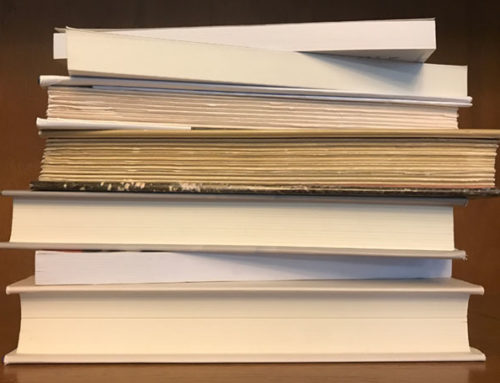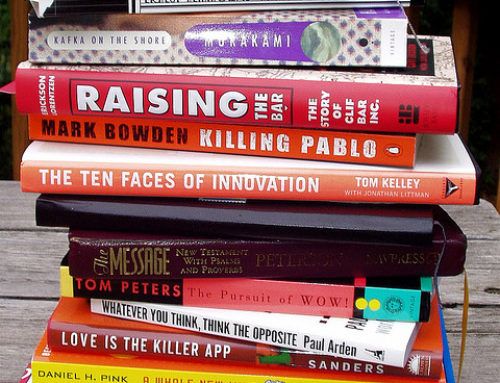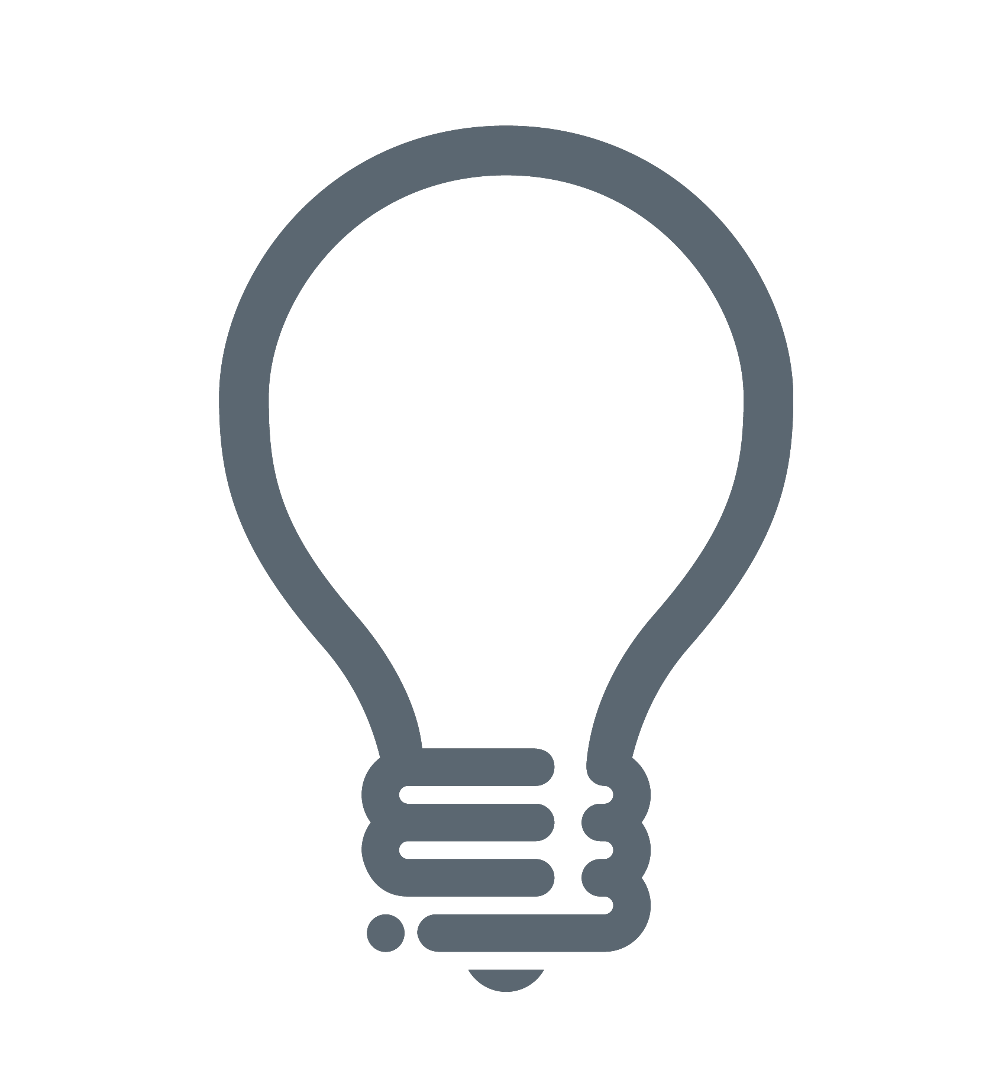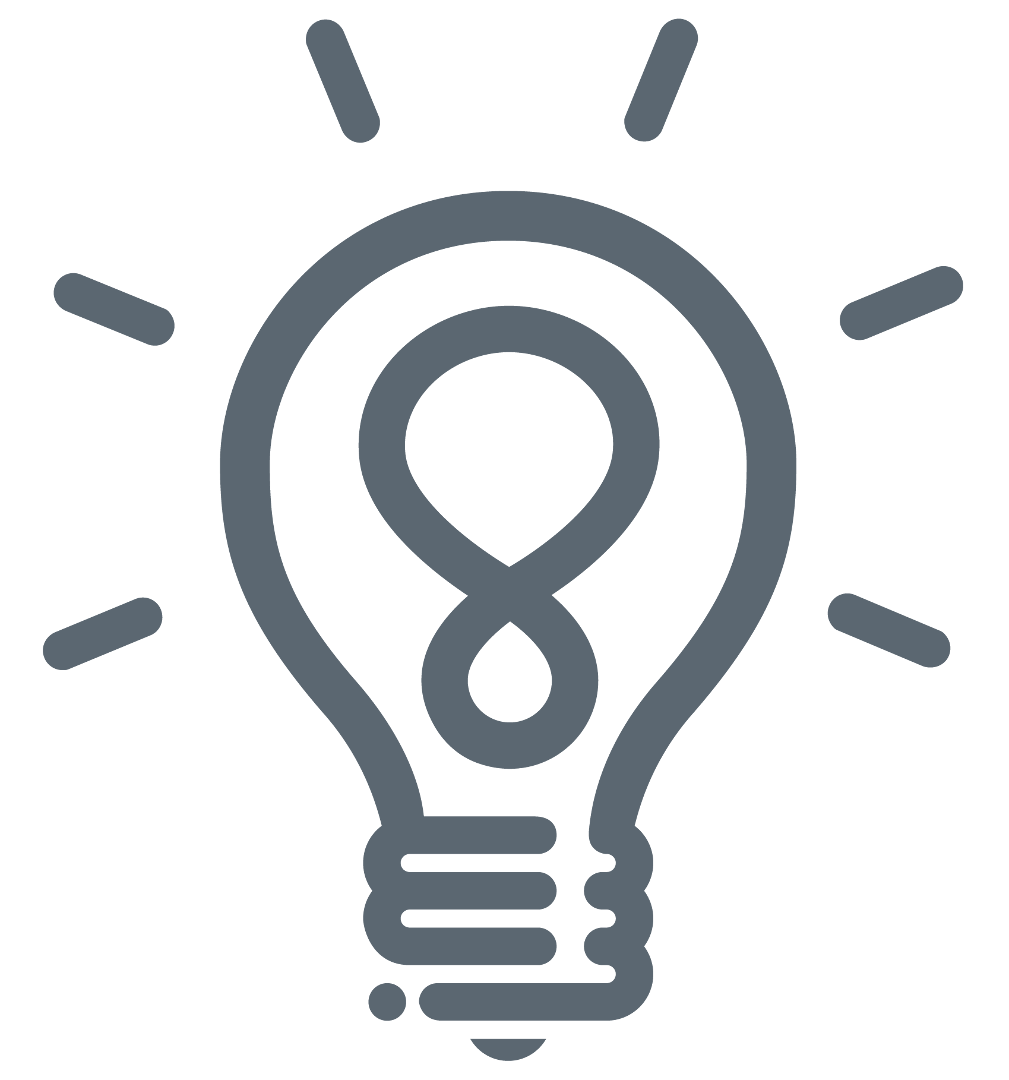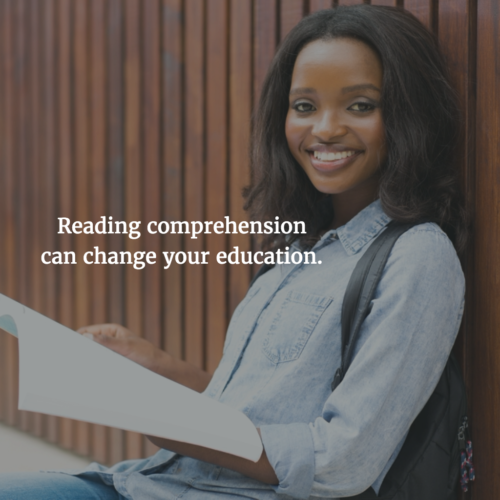
Reading comprehension can change your education.
What Is Reading Comprehension?
Since the time we were in grade school, we’ve been told it’s important to have excellent reading comprehension. But what exactly does it mean to comprehend what you read? And how do you go about improving it? Reading comprehension is the ability to “read text, process it, and understand its meaning.” This may seem pretty straightforward, but in reality, reading comprehension is a fairly complex process. Allow us to break it down for you.
Reading Comprehension Broken Down
Simply reading words on a page is not necessarily the same as comprehending them. “Reading comprehension occurs when the reader derives meaning from the text, relates ideas to their own knowledge, and constructs mental representations in their memory.” In other words, comprehension requires you to relate the text to your own personal experience and form some type of connection.
Good reading comprehension requires you to be both purposeful and active while you read. Purposeful means you accurately read the words on the page. In order to comprehend the text, you first need to know what the text is saying. Active means you use your knowledge and experience to make connections and understand the text. Find a way to relate the text to your life. Forming a personal connection will allow you to grasp key concepts in the text much easier.
How The Brain Learns to Read page 96
Why is Reading Comprehension Important?
Reading is an integral part of your daily life. Whether it’s reading your textbook, completing assignments, searching the internet, going through emails, or scrolling through your Facebook timeline. The fact of the matter is you spend a large portion of your day reading. To be successful at school, work, or just life in general, you need to be able to comprehend the words you read throughout the day.
Any student knows that school requires hours of reading! Those textbook assignments can be a nightmare! For one thing, your textbook probably isn’t as entertaining as your favorite adventure or science fiction novel. When you’re bored, your brain isn’t engaged. This makes it much more difficult to comprehend the words you’re reading. A lot of time is wasted rereading and reviewing concepts because of poor reading comprehension. Brain training can significantly help with this problem. Get yourself a brain training tool like eyeQ. The eyeQ program uses high-speed exercises to challenge and stimulate the brain. eyeQ increases brain activity while users read by as much as 1500%. A higher level of brain activity while reading will ultimately result in higher reading comprehension.
What Can I Do to Improve My Reading Comprehension?
If your reading comprehension skills could use a little work, have no fear! Here are some steps you can take to improve your comprehension today.
1. Monitor Your Comprehension: One of the best ways to improve your comprehension is to monitor yourself as you read. How exactly do you monitor yourself? The key is to consciously evaluate your knowledge of the text by asking yourself questions as you read. Ask yourself questions like “what is the purpose of this text?” or “what does the author want me to remember?” Hold yourself accountable and evaluate your comprehension as you read.
2. Generate Questions: A common technique used to test reading comprehension is to provide a series of questions at the end of a passage. These questions are designed to test your knowledge of the text. Although answering questions is a great way to test comprehension, questions are not always available. Try generating your own possible questions. This forces you to focus on the purpose of the reading and also improves your brain’s mental processing. Reading programs like eyeQ can help train this technique. The app will ask questions after you read a passage of text to measure how well you are comprehending what you read.
3. Create Mental Images: Visualization is a powerful technique and can greatly improve your reading comprehension. As you read, picture key details in your head. Imagine what the characters look like, visualize the scene, or picture an object in explicit detail. Creating images in your mind will drastically improve your memory, resulting in higher comprehension.
4. Summarize: When you finish reading a piece of text, quickly summarize it in order to test your knowledge. Summarizing and simplifying are excellent ways to test your comprehension. Here are some guidelines you can follow to ensure your summaries are successful.
How to successfully summarize:
- Identify the main ideas of the text: What is the author trying to convey and what do they want you to remember?
- Connect the main ideas to each other: How are they related and how does it contribute to the overall message or theme of the text?
- Eliminate unnecessary information: What is important and what are frivolous details?
5. Paraphrase: Take your summary one step further. Try summarizing the text out loud and in your own words. Using more than one of your senses will result in a deeper understanding of the text, and will also increase your memory. When you read, the brain typically utilizes only one small section known as Broca’s Area for processing language and auditory stimuli. The eyeQ training will engage more areas of your brain, including areas responsible for reason, conceptual learning, memory, vision, and more. Training your brain to use both the left and right sides while reading will also result in increased memory and higher reading comprehension.
6. Train Your Brain: Your brain is a muscle similar to the muscles in your body. In order to function and read at its highest capacity, your brain needs the occasional workout. Exercising your brain improves mental processing much like physical exercise helps athletes improve their performance on the court or field. With consistent exercise and weight lifting, an athlete becomes physically stronger. Similarly, eyeQ helps exercise the brain, enhancing all mental activities. As with an athlete, these skills diminish without practice, but never totally go away. Regularly doing a simple eyeQ session will keep you mentally fit, improve your brain’s processing skills, and also drastically increase your reading abilities.
How The Brain Learns to Read page 100-101



